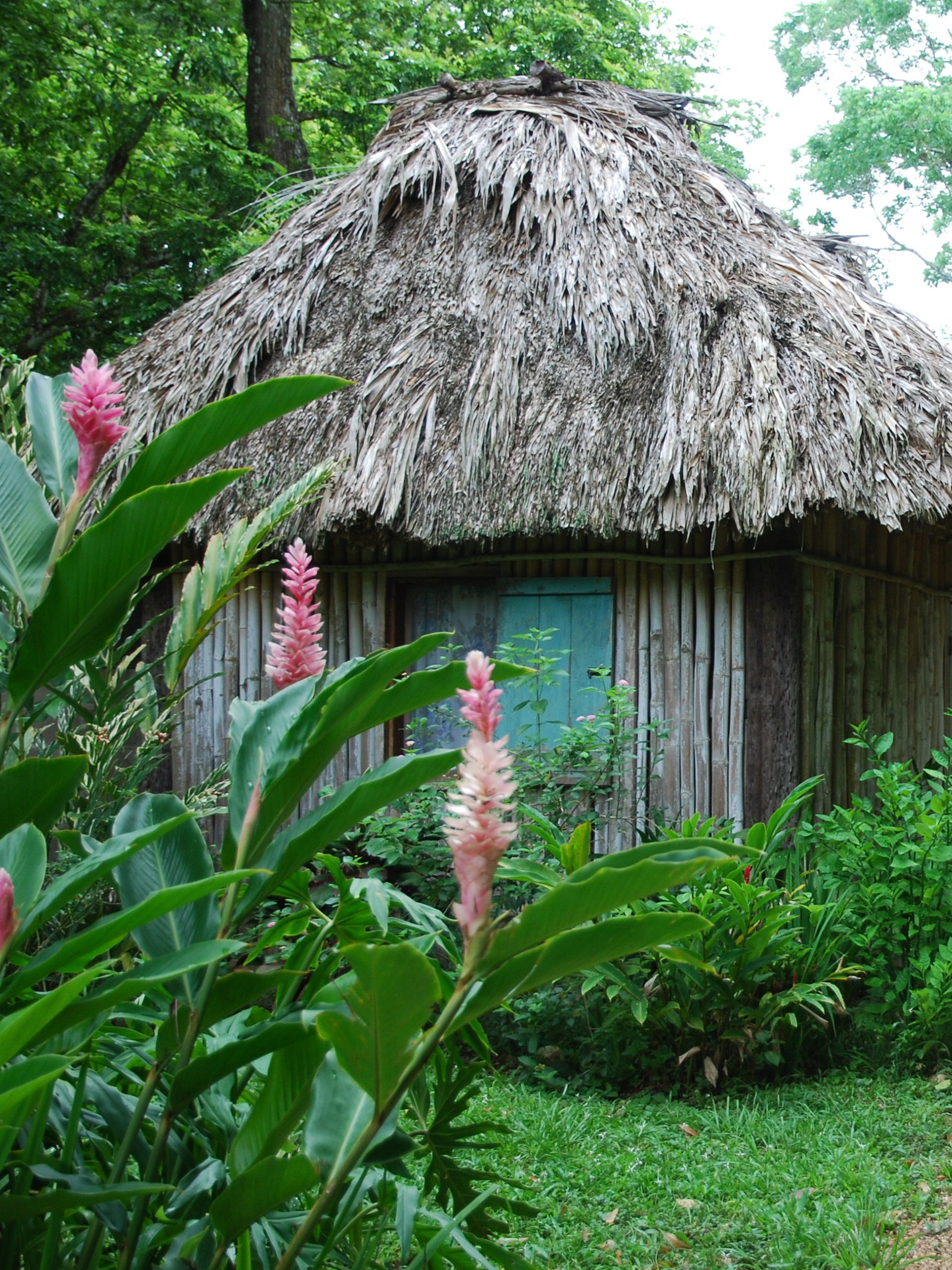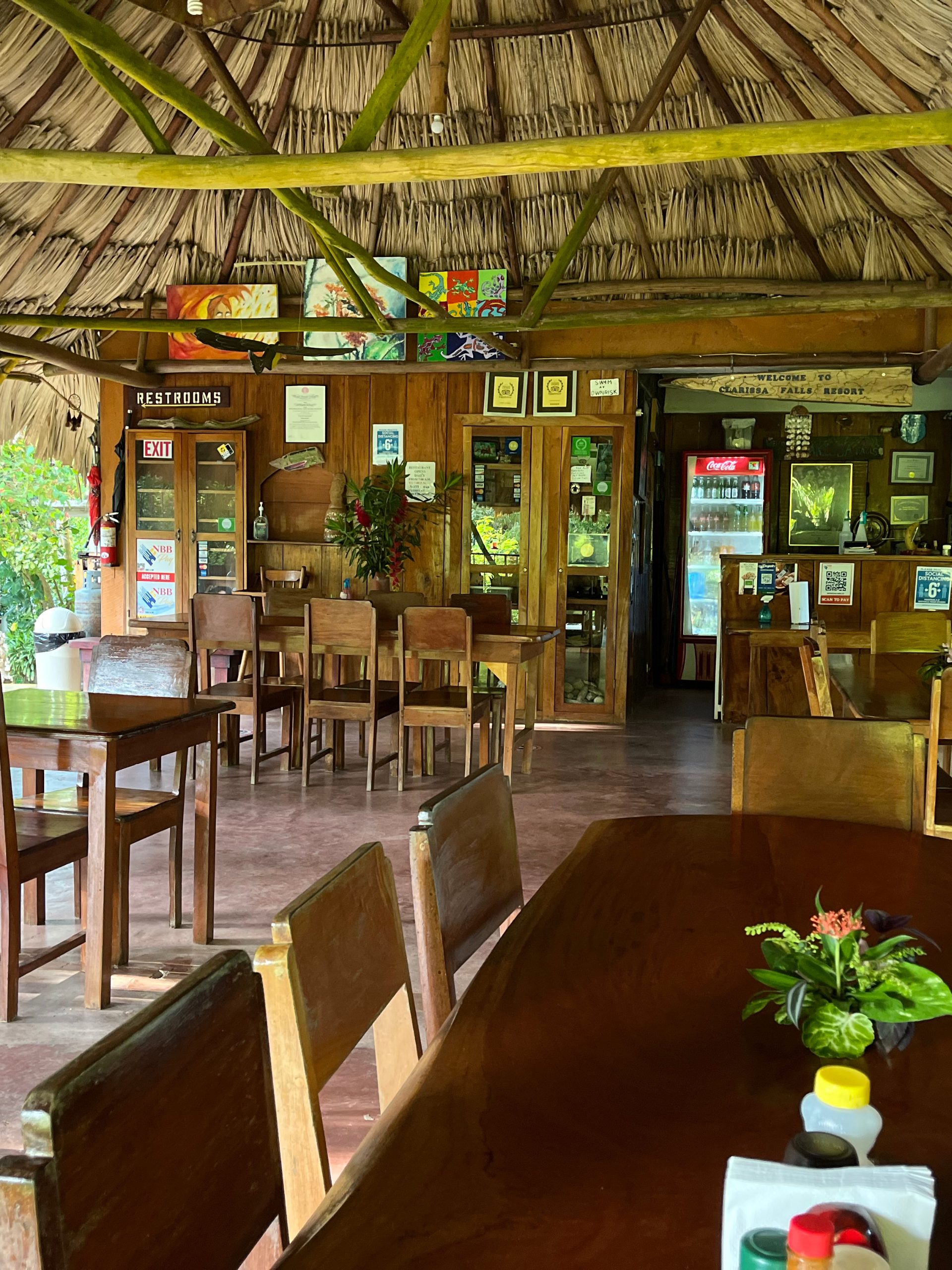Project Description
Overview
Nestled in the picturesque Mopan River Valley, the archaeological site of Actuncan was home to an ancient Maya community for 2000 years—from 1100 BC to AD 900—during which time community members built huge pyramids, broad plazas, roads, water reservoirs, neighborhoods and other kinds of physical infrastructure critical to the long term success of a small city. This urban infrastructure was key to the establishment of the community’s holy lords (k’uhul ajawob). Additionally, it was critical to the establishment of the administrative logistics of those leaders’ power and of the limits of those leaders’ authority over other members of the community. During this field school, students will excavate a monumental platform associated with the administration of water as a resource. Given the cosmological significance of water to the Maya, we expect that this space was both the center point for the negotiation of power relations and a place of community ritual. Students can expect to learn how to excavate architecture and will likely encounter the remains of ancient ritual activities. Students will also learn pedestrian survey methods as we begin a program of inventorying the locations of households in a neighborhood across the Mopan River from Actuncan.
Students will live at Clarissa Falls Resort, located within a working ranch. We have the fortune of being fed fabulous Belizean cuisine by Chena Galvez, one of the best cooks in Western Belize. Each day is an adventure on the Actuncan Archaeological Project: we start by crossing the Mopan River by raft and then hiking to Actuncan for a day’s work. Students will also travel to nearby archaeological sites such as Xunantunich, Cahal Pech, Caracol, and the Actun Tunichil Muknal cave to get a comparative view of ancient Maya cities and will visit the nearby town of San Ignacio to get exposure to Belize’s cosmopolitan modern culture, which is a colorful combination of Central America and the Caribbean. Join us!
| Course Details | |
|---|---|
| Course Dates | May 26 – June 22, 2024 |
| Course Type | Archaeology |
| Instructors | Dr. David Mixter & Dr. Kara Fulton |
| Credits* | 8 semester (12 quarter) |
| Apply By | April 1 |
| Fees Due By | Summer 1 (May 1) |
| Program Fees | |
|---|---|
| Tuition | $4,475 |
| Transcript Fee* | $300 |
| Health & Evacuation Insurance | $125 |
| Room & Board | $1,330 |
| TOTAL: | $6,230 |
Applications accepted on a rolling basis until program fills or final deadline above.
Instructors
The directors welcome emails and inquiries about the research elements of this project. More general information (tuition, health insurance, and payment schedule) can be found under the ‘Students’ tab above. Any further questions may be addressed to IFR staff. Additional details about research, course schedule, travel, accommodation, and safety can be found on the syllabus. Contacting the directors or the IFR office is encouraged and appreciated. It may help you determine if this field school is a good fit for you.
Testimonials
This is a new IFR field school. No student testimonials are available at this time.
Payment & Student Fees
Application Fee: There is a $45 fee to submit an online application.
Deposit Payment: A nonrefundable $500 deposit is due within 3 weeks of program acceptance in order to secure your place. The remainder of your program fees are due by the deadline indicated under “Course Details”.
*Transcript Fee & Academic Credit Opt Out: If you wish to participate in an IFR field school without earning academic credits, you will not be charged a transcript fee.
For more information about payment, fees, and policies, please see details under our Payment & Finances and Withdrawal and Cancellation Policy pages.
Accommodations
Students will stay in an eco-resort, Clarissa Falls Resort, which provides a lovely setting among tropical flowering plants and fruit trees. You will have plenty of opportunity to spend time swinging in the resort’s many hammocks or lounging by the riverside in your time off work.
Accommodations are dorm-style with 3-6 students per room/cottage. Each room has a private bathroom with hot water shower. Each individual will be provided a bed with a mattress, pillows, sheets, and blankets. Each room contains rotating fans to help move some air during hot nights. Resort staff will clean your rooms weekly, but you will be provided with supplies to provide maintenance cleaning in between.
Meals are served in the resort’s restaurant, and Chena Galvez is a legendary cook in the region. Each day, she and her staff will prepare local favorites such as stewed chicken, beans and rice, fried plantains, and fresh fruit juice for you to enjoy. Breakfast and dinner are served family style at a single long table, where we will get a chance to get to know each other over Chena’s fabulous food. If you have dietary restrictions, please let the project directors know. Chena is used to dealing with a wide range of dietary requirements.
We will provide supplies for students who want to try doing their laundry by hand. For those who are less ambitious, Clarissa Falls Resort provides a laundry service for a small fee.


Travel Info
Natural disasters, political changes, weather conditions and various other factors may force the cancellation or alteration of a field school. IFR recommends students only purchase airline tickets that are fully refundable and consider travel insurance in case a program or travel plans must change for any reason.
General information for this program is below, but keep in mind we will discuss any updated travel information and regulations during the required program orientation, which could affect travel plans.
Students will be met by project representatives at the Philip S.W. Goldson International Airport in Belize (airport code: BZE) on Sunday, May 26, 2024. Students must inform the project directors of their arrival time and flight number before the project. Because the airport is a 2 hour drive from Clarissa Falls Resort where we stay, we will wait until all students have arrived to drive back to camp together by car or van. If you are coming overland or would like to arrange your own transportation to site, please contact the directors as soon as possible.
Once at Clarissa Falls Resort, travel to and from the excavation field site is on foot. Occasional outings from Clarissa Falls to nearby towns or archaeological sites will use project vehicles, tour operator vehicles, or local badged taxis. Tours of Caracol, in the Belize Mountain Pine Ridge, and Actun Tunichil Muknal caves will be coordinated by a local tour company and use their vehicles.
VISA REQUIREMENTS
US citizens require a valid passport to enter Belize. A 30-day travel Visa is typically included in your flight. If you plan to stay longer than 30 days (the field school is 28 days), then you must visit a local immigration office prior to departure to pay for a visa extension. Additional information can be found in the U.S. Dept. of State Belize International Travel Information website.
Citizens not from the USA are asked to check the embassy website page at their home country for specific visa requirements.
Student Safety
The IFR primary concern is with education. Traveling and conducting field research involve risk. Students interested in participating in IFR programs must weigh whether the potential risk is worth the value of education provided. While risk is inherent in everything we do, we do not take risk lightly. The IFR engages in intensive review of each field school location prior to approval. Once a program is accepted, the IFR reviews each program annually to make sure it complies with all our standards and policies, including student safety.
Students attending IFR international programs are covered by a comprehensive Health Insurance policy that includes physical illness or injury, mental or chronic conditions. No deductible and 100% of costs are covered up to $250,000. In addition, we provide Political and Natural Disaster Evacuation policy, which allow us to remove students from field school location if local conditions change. Our field school directors are scholars that know field school locations and cultures well and are plugged in into local communities and state institution structures.
Students attending IFR domestic programs (within the US) must have their own health insurance and provide proof upon enrollment. IFR field school directors are familiar with local authorities and if in need of evacuation, local emergency services and/or law enforcement will be notified and activated.
The IFR has strong, explicit and robust policy towards discrimination and harassment in the field. If students feel they cannot discuss personal safety issues with field school staff, the IFR operates an emergency hotline where students may contact IFR personnel directly.
Call (877-839-4374) or email (info@ifrglobal.org) if you have questions about the safety of any particular program.









